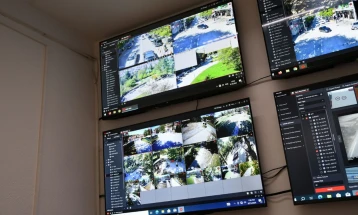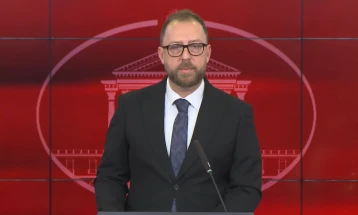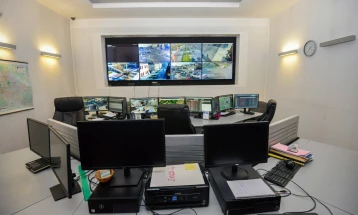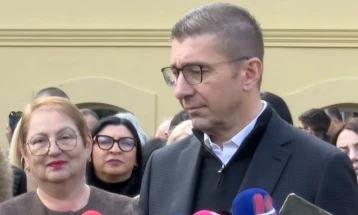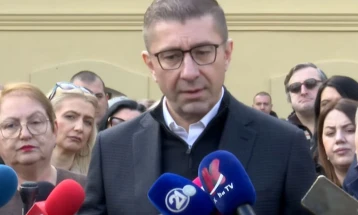Kevin: Funding of regulator or national broadcaster should be stable and predictable
- The EU-funded project “EU for Freedom of Expression: alignment of national media legislation with EU acquis and European media standards” was launched on Wednesday.
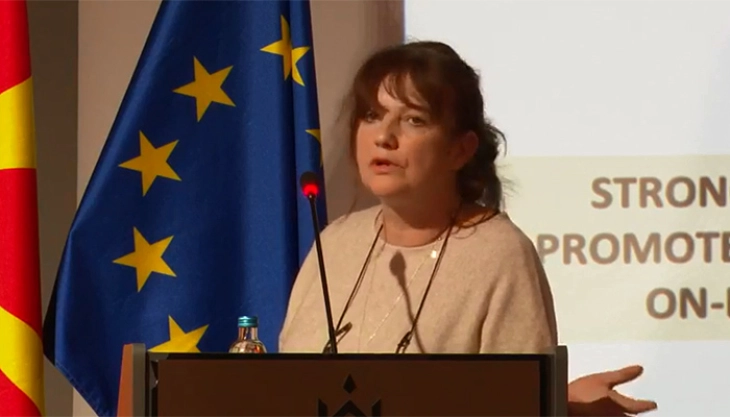
Skopje, 25 January 2023 (MIA) – The EU-funded project “EU for Freedom of Expression: alignment of national media legislation with EU acquis and European media standards” was launched on Wednesday.
The key objectives of the project include aligning legislation with the Audiovisual Media Services Directive, strengthening the institutional capacity and independence of the national media regulatory body (Agency for Audio and Audio-Visual Media Services) to guarantee the implementation of the legal framework, improving the legal framework on the national public broadcasting service (MRT), in line with European standards and ensuring its financial stability and independence, analysis of the media market and proposing policies and legal solutions to improve competitiveness, sustainability and pluralism, providing recommendations for legal, regulatory and self-regulatory mechanisms that can be used to respond to the challenges posed by the new digital media environment, as well as promoting the legal protection of the social and labor rights of journalists.
Deirdre Kevin, project leader and media regulation expert, presented the first findings of the project regarding the alignment of media legislation with the Audiovisual Media Services Directive, noting that there will be two phases in terms of the reforms implemented, and there is some urgency due to Creative Europe over alignment with the directive.
She pointed out that phase one is alignment with the Directive, also related to the capacity and independence of the regulator, which is a very important part of the new Directive.
“Regarding this we have already carried out an analysis of the current legislation and looked at how other countries have harmonized their legislation with the Directive. We’ve made amendments and talked to various stakeholders. There will now be an official round of public consultations and finally a comparative analysis of what to do with video sharing platforms. The new legislation will have to cover all these elements of the Directive and this will mainly affect the law on audiovisual and media services,” said Kevin.
Phase two, she added, will cover other elements of the project in relation to the public broadcasting service, in terms of market viability, regulation and self-regulation of online media, protection of journalists’ rights, which, she noted, is already covered by the law on audiovisual and media services, the law on media, etc.
According to her, promoting media literacy, the importance of cooperation between regulators, both at national and international level, is also crucial.
“If we look at the Directive from the point of view of human rights and protection, banning content is important. This is already covered by your law, banning incitement to hate speech, violence and incitement to terrorism. There have been some changes – incitement to terrorism is now also included. This also applies for video sharing platforms, however, banning content that leads to certain crimes such as child pornography, banning xenophobia and racism, protecting minors, this is already covered,” Kevin pointed out.
She noted that the issue of accessibility of audio-visual media services to people with disabilities is no less important, and the previous directive has required member states to make their content accessible.
“Current provisions under the law do not guarantee stable, predictable funding to the regulator or the national broadcaster. The red line we have established is that the method of financing should be something that is stable and predictable,” Kevin stressed.
Through the harmonization of media legislation with the Media Directive (EU)2018/1808 and other relevant European media acts, the project aims to create a legal environment that promotes freedom of expression, competitiveness, and the long-term viability of the media market. This result should be achieved by supporting the relevant institutions and by encouraging the influence of various civil society organizations, and the media sector, in defining new media policy directions and amendments in the media-related laws.
